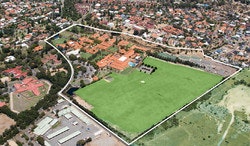Year 12 Politics and Law ATAR
Overview
A knowledge of Australia's political and legal systems is essential to enable us to become fully involved and effective citizens of our nation. Politics looks at the structures and processes through which individuals and groups make decisions whilst the study of law examines our system of laws governing the conduct of our society. The study of Politics and Law contributes to the students' intellectual, social and ethical development and challenges students to critically examine the effectiveness of political and legal systems, as well as positioning students to be more effective participants in our society.
Unit 3:
Political and Legal Power
- Legislative, executive and judicial powers with reference to the Australian Constitution as well as a comparison to another system
- Functions of the Commonwealth parliament in theory and practice
- Roles and powers of the Governor General
- Roles and powers of the Prime Minister, Cabinet and the Ministry
- Roles and powers of the Opposition
- The lawmaking process in parliaments and the courts
- Roles and powers of the High Court of Australia
- Federalism in Australia
- Changes in the balance of power between the Commonwealth and the states
- Methods of constitutional change
- Reform proposals of the Australian Constitution.
Unit 4:
Accountability and Rights
- The accountability of the Commonwealth Parliament
- The accountability of the Executive and public servants
- The accountability of the Governor General, including the 1975 crisis
- The accountability of the courts
- Types of rights
- The ways of protecting rights in Australia and in another country
- The status of human rights in Australia
- The ways Australia and another country can uphold or undermine democratic principles
- The experience of a particular group in the Australian political and legal system.
Assessment
There are five main types of assessment in the ATAR Politics and Law course at John XXIII College. These are:
|
Assessment Type
|
Detail
|
Weighting
|
|
Investigation
|
Research, including hypothesis testing, analysis of sources
|
10%
|
|
Short Answer
|
Typically a series of closed questions that require definitions, explanation, comparison completed under test conditions
|
15%
|
|
Essay
|
Typically a response to a question or statement completed under test conditions.
|
15%
|
|
Source Analysis
|
Examination of source materials such as statistics, opinion polls, newspaper reports, internet sites, political speeches
|
20%
|
|
Examinations
|
The exam comprises a combination of short answers, source analysis and essays
|
40%
|
Reporting
A grade will be assigned following the completion of the course unit.
|
Grade
|
Interpretation
|
|
A
|
Excellent achievement
|
|
B
|
High achievement
|
|
C
|
Satisfactory achievement
|
|
D
|
Limited achievement
|
|
E
|
Very low achievement
|
Each grade is based on the student's overall performance for the course unit as judged by reference to a set of pre-determined standards. These standards are defined by grade descriptions.
Student Expectations/Homework
Students will be expected to complete approximately 3 hours of homework each week. This time should be spent consolidating material covered in class as well as any assigned tasks.
